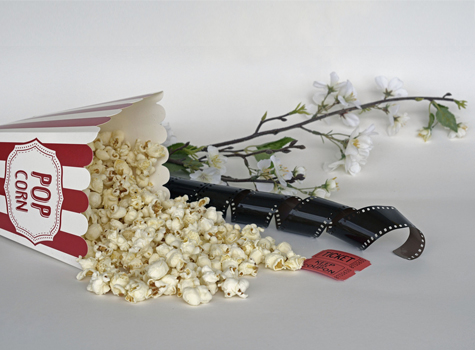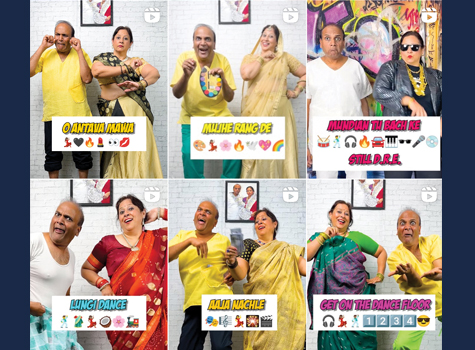
Happy New Year!
Welcome the Year of the Dragon, 2024, according to the Chinese horoscope but my prediction is that it will be the Year of Entertainment.
In 1984, daily entertainment for the average kid in Mumbai meant watching shows on Doordarshan, the sole national TV channel, in the evening. On good days one would find something interesting for about 30 minutes and wait for a grand treat on weekends – a full length movie. Other sources of amusement included occasional cinema in rather sad theaters well past their prime and a few analog games. Remember “Waterfuls”? Video rentals and games came much later, at least at our house.
2024 could not be more different. Every seemingly busy person manages to pack in two to three hours of entertainment a day. Often, they do not even have to step out of the house, and if they do, shows, music, sports and shopping outlets all travel along with them in pockets and purses. I recently started tracking the time that I spend on the new age handheld device that rules our lives these days. It is embarrassing in terms of its length, but the minutes spent on social media and other apps is perhaps no different than I would have spent as a woman in her 40s about three or four decades ago.
Thirty minutes of gossiping with the neighbors would be like being on Facebook. Sixty minutes spent checking on parents or relatives about their health would be the equivalent of WhatsApp chats and 15 minutes of consulting your “Doctor Aunty” about weird health symptoms after binging on pav-bhaji was the old counterpart of browsing through WebMD. Most people were also likely to spend about 45 minutes perusing the newspapers just as we skim through several news related sites. After my analysis, it doesn’t seem so bad, does it? Is it my fault that the cellphone houses all these valuable resources?
Books, audio, music, shows, “shorts” (short films) or jokes created by professionals, novices and celebrities alike provide copious amounts of diversion from whatever people are trying to procrastinate or avoid altogether. Folks bored of conventional forms of art have moved on to viewing other individuals who are traveling, cooking, and playing video games. As absurd as it sounds, living vicariously through others has become a way of passing time.
Additionally, watching a movie or any nugget of performance available at your fingertips is not enjoyment enough, critiquing it with passion has become equally important. My guilty pleasure is flipping through digital ads. The annoying advertisers follow me like the chanawala (snack seller) on Juhu beach who wouldn’t let visitors enjoy their walk or relax until they bought a handful of chanas filled in a paper cone. Ads have adopted the same strategy, although the products cost much more than peanuts.
Interestingly, we are more than consumers of entertainment, you and I, my friend, are also entertainers. Funny videos of kids’ goof ups, dances or songs by amateur performers, or lip synching to movie lines are mostly tolerable because those artists are friends or family members and truth be told, the “loves” and “likes” for the videos demonstrate affection for the person rather than admiration for their talent. I can’t help but marvel at the variety of newfound talent and I don’t even have TikTok.
What can be dismissed as a waste of one’s time can be useful, too. Watching old Yash Chopra film hits can be a boredom buster while loading the dishwasher and I can increase the IQ of a mindless task such as folding laundry by listening to informative podcasts. On some days I am eager to get on the treadmill, because it’s the perfect excuse to catch up on the audio version of the novel I am reading. As I have mentioned in one of my previous articles titled “A Vitamin Called Fiction”, reading literary fiction can be therapeutic and I often turn to books when my mind is in turmoil.
Nevertheless, the abundance of fun and games is not leading to a population that is devoid of stress. Folks aren’t smiling from ear to ear all the time but are rather grouchy. If you have any doubts, read a few comments on public posts. It was an episode from my favorite podcast series Hidden Brain that helped me understand this puzzling outcome. On the show titled, “The Paradox of Pleasure,” psychiatrist Anna Lembke shared how innocuous activities such as reading romance novels can become an addiction due to easy access, abundance, and variety of the “drug.” Once a person becomes addicted, their sensation of feeling high is short lived and sadness emerges if they do not receive the next dose quickly.
Unfortunately, the convenience of online shopping, high speed internet, and affordability of mobile devices, have come at a cost. Contrary to popular belief, having limits, fewer choices, and in many cases, ignorance may lead to greater happiness. Expecting joy all the time may be a fallacy, but we can introduce more balance in our lives by taking breaks from constant entertainment. On a rainy afternoon this past December, I put my phone away and spent the afternoon decorating the Christmas tree and those hours filled me with contentment. As the year progresses, I hope that we can mix fun and responsibility in just the right amounts.
Shyama Parui is a long time North Carolina resident and an ardent writer. You can reach her at: shyamashree_parui@hotmail.com



